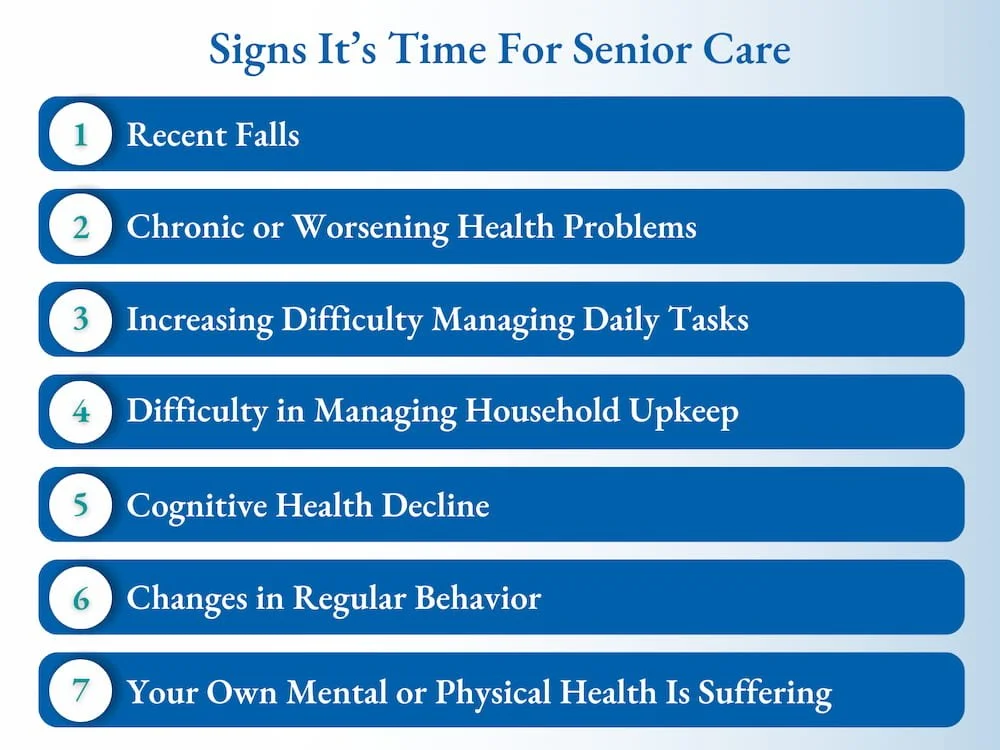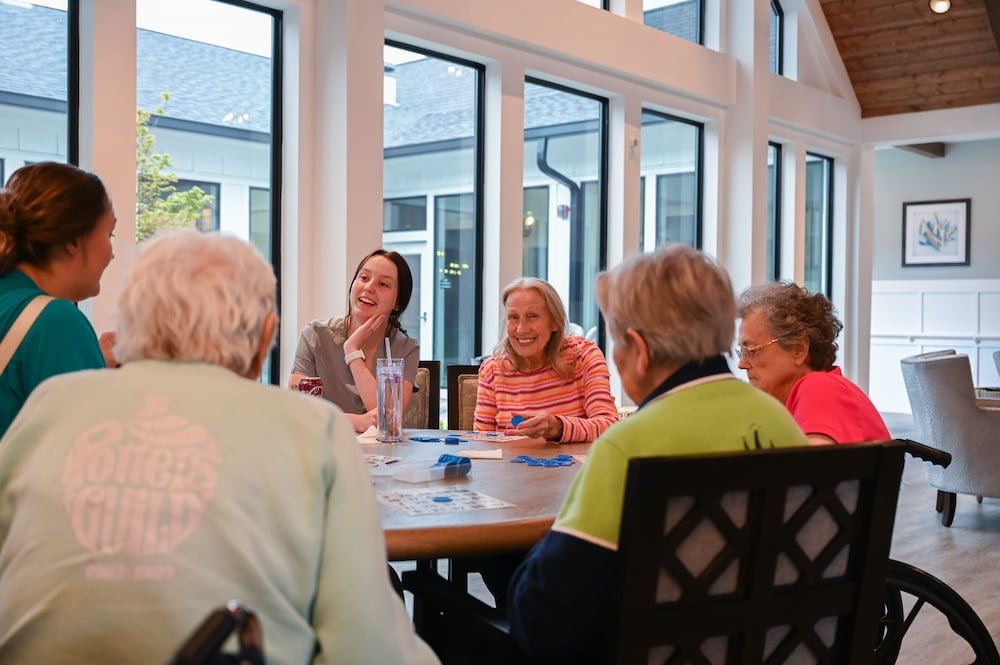Recognizing the Signs: Is It Time for Senior Living for Your Aging Parent?
As your loved ones age, their needs evolve, and it becomes crucial to assess whether their current living situation is still suitable for their well-being. At Remember Me Senior Care, we understand the importance of recognizing the signs that may indicate it's time to consider assisted living or memory care. Here are seven key indicators, each serving as a gentle nudge toward ensuring the best possible care for your aging parent.
1. Recent Falls
One of the most apparent signs that it may be time to consider a senior living community is the occurrence of recent falls. Frequent falls can be indicative of declining mobility and balance, putting your loved one at an increased risk of injury. Considering falls are the leading cause of injury for adults 65+, if you've noticed an uptick in falls, it's essential to get help right away.
2. Chronic or Worsening Health Problems
Persistent health issues can significantly impact your loved one's quality of life. Chronic conditions that worsen over time may necessitate a level of care that assisted living or memory care communities can provide. Regular assessments and consultations with healthcare professionals can help determine the appropriate level of care needed. Additionally, senior living communities ensure consistent medication management, offering residents and their loved ones the peace of mind that comes with a meticulously managed medication regimen.
3. Increasing Difficulty Managing Daily Tasks
As individuals encounter increasing difficulty in managing tasks that were once routine, it may serve as a signal of a potential decline in cognitive or physical abilities. Recognizing the importance of maintaining a fulfilling and independent lifestyle for seniors, senior living communities provide a compassionate and helping hand, empowering residents to navigate daily life with ease and dignity.
4. Difficulty in Managing Household Upkeep
Difficulty in managing a home or yard upkeep may point to challenges in maintaining the responsibilities of living independently. Damaged interior paint, broken fixtures, an overgrown and weed-filled lawn, dirty clothes or undone laundry, and broken appliances are all signs of difficulty maintaining a home. Senior living communities address these concerns by ensuring that living spaces are consistently well-maintained, while residents are free from the burden associated with home upkeep.
5. Cognitive Health Decline
Declining personal hygiene, wandering, and disorientation among seniors not only signify potential cognitive challenges but also pose health and safety risks. Assisted living communities are designed to address the vital need for a secure and nurturing environment while prioritizing the preservation of dignity and overall well-being of the residents. Senior living communities implement secure features such as locked doors, monitored exits, and carefully planned layouts to prevent wandering, ultimately prioritizing the safety and well-being of residents. By providing a structured and secure setting, communities aim to offer peace of mind to both residents and their families, fostering a reassuring and protective living environment.
6. Changes in Regular Behavior
Observable changes in a senior's regular behavior, such as increased isolation, mood fluctuations, or even aggressive tendencies. Isolation may manifest as a withdrawal from social interactions, while mood changes and aggression may be indicators of emotional distress or discomfort.
Senior living communities actively engage with residents to identify and fulfill their individual needs. To counter isolation, communities curate a variety of social activities and engagement opportunities. These may include group outings, hobby clubs, and communal events, fostering a supportive environment that promotes not only physical health but also mental and emotional well-being.
7. Your Own Mental or Physical Health Is Suffering
Caring for an aging loved one often results in a significant toll on your own well-being. Signs that you might be experiencing a caretaker burnout often include:
Feelings of helplessness
Withdrawal from friends and family
Changes in appetite
Frustration or anger toward others
Fatigue
Recognizing your limitations and seeking the support of a senior living community can ensure that both you and your loved one receive the care you need.
Navigating the decision to transition a loved one to senior living is a complex and emotional process. Recognizing these signs early on allows for thoughtful consideration and planning, ensuring that your loved one receives the care and support they deserve. At Remember Me Senior Care, we are here to guide you through a senior living journey and provide compassionate care your family deserves. If you’re not sure if it’s the right time for your loved one to move to a senior care community, take this short quiz to find out. For more questions please don't hesitate to reach out to us, our dedicated team is here to assist you and provide the support and information you and your family need.




